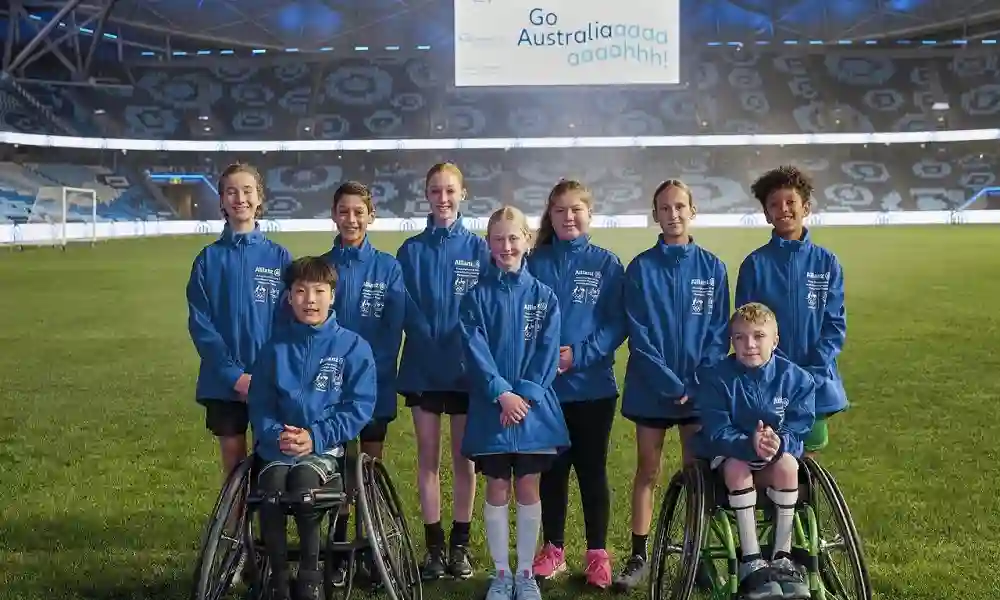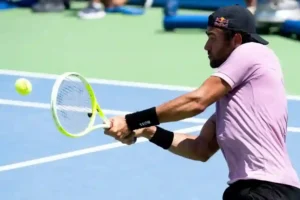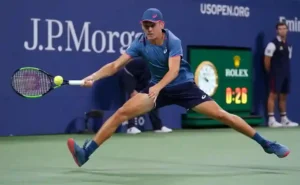From Grassroots to Glory: How Young Athletes Become Legends

Every legend starts somewhere, and for athletes, it’s usually at the most humble of beginnings. From making dirt angels in the local park to getting their first competitive sports jersey, the journey from grassroots to glory is long, messy, and often punctuated by doubt. But trust me—getting to the top? It’s not all sunshine and gold medals.
Let me be real. I remember my first attempts at sports like they were yesterday. Spoiler alert: they didn’t go well. Picture this: an awkward 12-year-old, tripping over my own feet, trying to hit a softball with all the grace of a blindfolded octopus. I still haven’t quite recovered, but hey, that’s how it all starts.
The Starting Point: Grassroots to Glory (And That Awkward First Step)
It all begins with a spark. A kid with a dream, maybe a pair of hand-me-down sneakers, and a whole lot of heart. Grassroots sports programs? Yeah, those are the lifeblood of young athletes. Without them, half of us wouldn’t know what the heck a “free throw” is.
- Local Sports Programs: Before you even think about making it big, you gotta start local. The little league, the after-school programs, the backyard games with your friends—this is where the seeds of greatness are sown. It’s like learning to crawl before you run… unless you’re like me, and you trip halfway through crawling.
- Family and Community Support: Y’all, I can’t stress this enough. Without the encouragement from your family or that one coach who believed in you when no one else did, you’d be stuck watching reruns of old games instead of playing in them. I remember my cousin Jason always being my cheerleader—even when I couldn’t catch a ball without it ricocheting off my face.
- Learning the Basics: Don’t expect to win gold medals after your first practice. The early days are all about getting the basics down: passing, dribbling, understanding the rules. I remember when my first dribble looked more like a weird dance move than an actual basketball maneuver. We all start somewhere, right?
Fast forward past three failed attempts, and you’re finally starting to hit your stride. It’s not glamorous, but it’s progress.
The Transition: Going From Local Leagues to National Recognition
Ok, so you’ve played in enough youth leagues, and now your name is getting thrown around a little more. Suddenly, people are talking about you. Yeah, you’re good. No, scratch that—you’re really good. Now you’ve gotta keep leveling up.
Building on Talent (And Let’s Talk About That Growth Spurt)
- Personal Coaches: Coaches aren’t just about yelling from the sidelines. (Well, some of them are, but that’s a different story.) A good coach becomes your mentor. They teach you how to finesse your weaknesses and strengthen your strengths. My first coach, Coach Dave, helped me perfect my terrible form—even though I thought I was just going through the motions. Turns out, I was learning stuff that stuck with me forever.
- Strengthening Weaknesses: No one’s perfect, but this is the part where you fix that awkwardness. I was the kid who couldn’t run without tripping over air—seriously, air! But over time, with the right training and a lot of sweat, I started running like I wasn’t trying to flee from my problems.
- Competing in National Tournaments: Oh, this is where the real fun begins. Local wins are great, but now you’re aiming for something bigger. National tournaments. The kind where the competition feels like you’re fighting against the entire universe. But hey, that’s how you test if you’ve got what it takes.
That First Big Win
- The Championship Moment: Remember your first big win? I still remember mine: a local soccer tournament. We won in double overtime, and I was holding my breath like I’d just run a marathon. After that, it felt like the whole world knew my name.
- Media Attention: Once you win a couple of big matches, suddenly your face is everywhere. Coaches start scouting you. Sponsors take notice. I didn’t quite get the endorsement deal, but one of my teammates landed a gig with a sports drink brand. I didn’t drink enough of it to get sponsored, but hey, you get the idea.
- Social Media Buzz: These days, it’s not just about how good you are on the field. Your social media game matters. Think about it: an athlete with a solid online following can get noticed quicker than ever. I’m not saying you should spend hours posting selfies, but—hey, if you’ve got it, flaunt it.
The Struggles: Not All Glory is Glorious
Now, here’s the kicker: it’s not all fun and games. The road from grassroots to glory? It’s filled with pit stops of blood, sweat, tears, and maybe some unnecessary tantrums.
- Injuries Happen: Don’t let anyone fool you. Injuries are an inevitable part of the game. I once sprained my ankle so badly during a game that I thought it was going to end my career. Recovering from that? Well, let’s just say it’s a test of your willpower. After all, you don’t get to be a legend by sitting on the sidelines (unless you’re getting paid to do so).
- Mental Toughness: It’s easy to look at the athletes at the top and think, “Why am I not there yet?” That’s where mental toughness comes in. I still remember my first big slump. My confidence tanked. But, as I learned the hard way, it’s about pushing through those dark moments. Every champion goes through them.
- Life Outside the Game: There’s a lot more to being a top athlete than just practicing. Balancing your sport with school, relationships, and a semblance of a social life? Hah, good luck. Let me tell you, it’s not as easy as it looks.
Mentorship: The Secret Weapon
- Learning From the Legends: If you can, find a mentor. No, seriously. A veteran who’s been through the grind can teach you things that no playbook ever will. For me, it was Coach Lisa. She didn’t just teach me how to play better; she taught me how to be mentally tough. Fun fact: she once survived a 10-day backpacking trip with nothing but a granola bar and her undying love for the game. Now that’s toughness.
- Building a Support Team: Here’s the deal: a good coach is great, but a solid team of support is crucial. The athlete’s journey from grassroots to glory isn’t a solo mission. You need a whole squad—family, teammates, agents, nutritionists—heck, even your weird Uncle Joe who sends you motivational quotes.
Becoming a Legend: Living the Dream
Now, if you’ve made it this far, congrats. You’re well on your way to being a legend. Seriously, you’re like, one step away from those “Where Are They Now?” features on sports blogs.
The Iconic Moments
- Breaking Records: Breaking records? Yeah, that’s a big deal. You might not get there today, but when you do, it feels like you’ve touched the stars. And it’s not just about the number—it’s about the story you tell along the way. That’s what makes you legendary.
- International Fame: Let’s talk about global recognition. Becoming a legend isn’t just about hometown glory—it’s about your name echoing worldwide. The legends I grew up idolizing? Their names are known everywhere. There’s a power in being global, in inspiring millions.
The Legacy: Passing the Torch
- Inspiring the Next Generation: The best part of being a legend? Watching others follow in your footsteps. The young athletes, the ones who look up to you, they’re the future of sports. Honestly, that’s the stuff that makes all the sacrifices worth it.
- Giving Back: I’m all about paying it forward. You can’t just take from the community that got you where you are. Whether it’s donating to local sports programs or helping to fund a new youth league, legends don’t forget where they came from.
- Mentorship—Again: So, here’s the kicker. Even after you retire, you’re not done. You pass the torch to the next generation, helping them avoid the same mistakes and navigate the complexities of fame. And trust me, those mentoring moments? They’re priceless.





